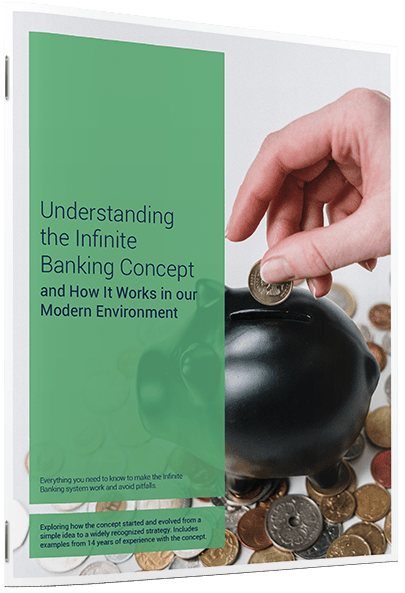317-912-1000
317-912-1000


An easy read and a perfect introduction to whole life insurance and The Perpetual Wealth Code™ Available in eBook or Audiobook format.
Download here>
Most insurance companies have strict guidelines when it comes to purchasing life insurance on a child or grandchild. Generally, they won’t approve such a policy unless at least one of the child’s parents already has a life insurance policy on their own life. This requirement serves as an important safeguard, reducing the likelihood that someone with malicious intent could take out a policy on a vulnerable minor. Sadly, history has shown that there are individuals capable of using life insurance policies in horrifying ways, including taking out policies on children and then orchestrating tragic outcomes to collect the death benefit. These protocols are one of the many ways insurers work to prevent such appalling acts from occurring.
Despite these necessary safeguards, parents and grandparents still have the ability to purchase and own life insurance on younger members of their family. They simply need to follow the precautionary measures and underwriting requirements set forth by the insurance companies. These rules are in place not to create barriers, but to protect innocent lives and uphold the ethical integrity of life insurance as a financial tool.
In fact, many families choose to insure their children or grandchildren as part of a broader financial strategy. Nelson Nash, the founder of the Infinite Banking Concept, often emphasized the importance of having “an even distribution of age classes” in a family’s life insurance portfolio. He believed that doing so could create and multiply generational wealth in a powerful and sustainable way. Nash spoke frequently about this concept, both in his book and in his live seminars, stressing how insuring younger generations can play a role in long-term financial planning and legacy building.

Understanding the Infinite Banking Concept and How It Works In Our Modern Environment 31-page eBook from McFie Insurance Order here>
The most preferred choice of life insurance plans can vary based on the policyholder’s age. If you’re purchasing a policy later in life, a term life insurance policy is often preferred as it provides coverage for a specified period. Once that time frame concludes, the coverage also ends.
However, for a young individual like a grandchild, a whole life insurance policy would be a more suitable option. A whole life insurance policy is designed to provide coverage throughout the policyholder’s entire lifetime. This means that the coverage could extend for decades, as long as the premiums are consistently paid. Opting for a whole life policy for your grandchildren could ensure long-lasting coverage, and it can also offer additional benefits.
Here’s an example. On the life of a 2-year-old girl, the parents or grandparents could purchase a participating whole life insurance policy for $2,000 per year, with a reduced death benefit and the policy completely paid-up (no more premiums required) by the time this young lady turns 21. The $38,000 paid in premiums over those 19 years will grow for the rest of this woman’s life, and with dividends the cash value accumulation will become greater than $437,000 by the time she turns 70. This fortunate daughter, or granddaughter, can rest assured that she will have enough capital to live comfortably for the rest of her life because of the generous and thoughtful planning by her parents and/or grandparents.
But to truly make such a plan become perpetual, the even distribution of age classes must be understood and adopted by each proceeding generation. In this case, if the parents are the ones who initiated the policy on their daughter, then she must be taught and instructed on how she can do the same for her own daughters, and sons. Otherwise, the wealth which the even distribution of age classes can deliver will be destroyed and not become generational.
Multiple policies purchased on each child or grandchild will only make “The even distribution of age classes” perform better. And of course, knowing that the parents must be insured prior to insuring their minor child (ren), the death benefit of the parent’s life insurance policies should more than cover the cost of the premiums necessary to fund the life insurance policies on the next generation.
Too many people have fallen into the mindset of not really caring about what happens to the next generation financially. Maybe these parents have spent money for their children’s education or weddings which they really should have been saving for their own future needs and now they are trying to cram for their own retirement.
But here’s the truth, if parents or grandparents would understand “The even distribution of age classes” and insure themselves and their children and grandchildren appropriately, America would NOT be in the dire financial situation if finds itself in today. It is pathetic that 90% of seniors are dependent on Social Security for at least 1/3rd of their income in America today. But if parents and grandparents will follow “The even distribution of age classes” in funding participating whole life insurance there will be plenty of money for educational needs, weddings, down payments on homes, etc.

Get the knowledge you need to build sustainable wealth, and have peace of mind about your financial future. Order here>
Nelson Nash imparted invaluable financial wisdom that, when followed, can yield significant economic benefits for your family. His teachings emphasize the power of life insurance as a tool for wealth-building and generational planning. By embracing his principles, you can set the stage for long-term financial security for your loved ones. If you’re considering starting life insurance policies for your children or grandchildren, McFie Insurance is here to help guide you through the options. Reach out to us through our website or call us directly at 702-660-7000. Let McFie Insurance assist you in finding the ideal policy that will best serve the financial future of your family.
 Tomas P. McFie DC PhD
Tomas P. McFie DC PhD
Tom McFie is the founder of McFie Insurance and co-host of the WealthTalks podcast which helps people keep more of the money they make, so they can have financial peace of mind. He has reviewed 1000s of whole life insurance policies and has practiced the Infinite Banking Concept for nearly 20 years, making him one of the foremost experts on achieving financial peace of mind. His latest book, A Biblical Guide to Personal Finance, can be purchased here.